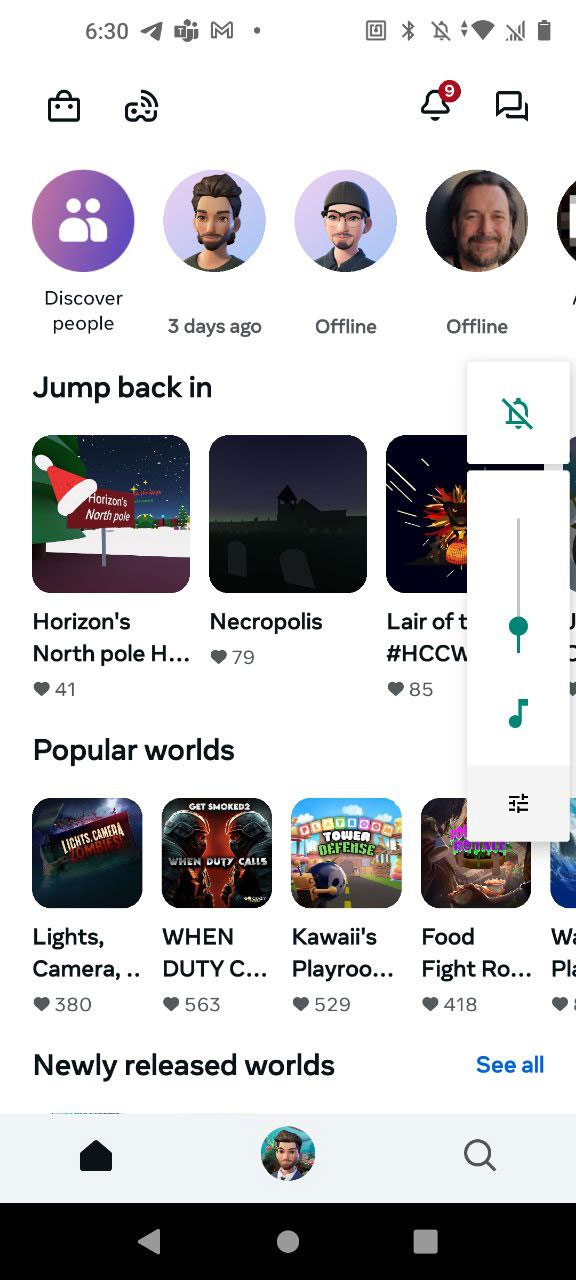In the world of virtual reality development, there’s quite a buzz—and not the good kind. VR developers, especially those working on Quest, are struggling more than ever to get their games noticed. The call to action for Meta is loud and clear: step up, or these developers might face dire consequences. Let’s dive into the core issues, explore some potential fixes, and understand why this debate matters.
### The merging of App Lab
#### The problem
For the longest time, I’ve been frustrated with how the Meta Store segregated indie developers into the “App Lab” section. It felt unfair to categorize us into Class A and Class B developers. Ideally, everyone deserves an equal shot at showcasing their game to the community, with hopes of hitting it big. So, when Meta decided to merge all titles into the primary Horizon (Quest) Store, I was thrilled.
However, the Horizon Store seemed unprepared for this shift. App Lab was home to both intriguing indie games and less polished experiments. Following the merge, many users started complaining that their store’s homepage was cluttered with low-quality content, while others were being recommended subpar games. One user even joked about being suggested a game clearly ripping off “Gorilla Tag,” humorously named “Orilla Tag.” It’s evident that the recommendation system is flawed, often spotlighting unworthy content over genuinely creative indie gems.
Furthermore, the Search Engine is another headache. Typing in partial game names often doesn’t yield the expected results, making it a challenge for users to track down games they vaguely remember from a video. This oversight is a lost chance for developers to make a sale.
When I search for “Hitmotion,” my game “Hitmotion: Reloaded” doesn’t even appear. It’s frustrating.
#### A possible solution
Fixing the search functionality should be a straightforward task for Meta, with various existing algorithms that can be implemented. With their massive budget, it’s surely about prioritizing this issue.
As for the recommendation engine, it’s an age-old problem, reminiscent of misguided suggestions during the Gear VR days. It’s high time Meta addresses this once and for all—though it’s admittedly not as simple as fixing search.
Meta, with its prowess in AI, should be capable of crafting an efficient recommendation system akin to its Llama models. The challenge lies in refining algorithms to balance various factors like content type, length, user history, and reviews to provide meaningful and personalized suggestions. The ultimate goal is to spotlight high-quality games, both established and indie, based on genuine user feedback.
### The visibility of Horizon Worlds
#### The problem
Meta has been vigorously promoting Horizon Worlds as the premier social VR platform. Despite hefty investments and marketing, it hasn’t achieved the expected success. Giants like VRChat and Rec Room have sidestepped Meta in popularity, leading to some criticism from the press.
Meta’s tactic has been to inundate users with Horizon Worlds. From the Horizon app’s homepage filled with worlds to the Quest’s initial “Horizon Feed” tab, the push is incessant. Even searches in the Store are geared more towards Horizon Worlds locales than games. Is this strategy beneficial?

Upon opening the Horizon app, this is the view on my phone. They are all Horizon Worlds destinations.
While I understand the pressure on Meta’s executives to hit user targets for Horizon, these tactics are alienating users like me. As a developer, it’s disheartening that my games have to contend with the Horizon Worlds destinations hogging mobile app priority. Some even choose free Horizon Worlds copies over original, paid games. This impacts revenue on the Meta Store.
Moreover, there could be legal implications if Meta continues favoring its own content over others like VRChat, especially considering new regulations like the Digital Markets Act that pressure gatekeepers to play fair.
#### A possible solution
Revamping the Meta Horizon app for better Store content visibility is pivotal. The search engine should only display game results, not Horizon Worlds—the latter should be confined to its specific app. This fixes confusion akin to typing “Microsoft Word” on a Windows PC, only to get a Roblox suggestion as the first result.
If Meta wants to drive interest in social VR, a curated “Featured Worlds” section could highlight top experiences across all social platforms, benefiting both users and developers without overshadowing main Store offerings.
Meta should also reevaluate if Horizon Worlds aligns with current VR community desires. Pushing a product relentlessly might indicate a mismatch with audience needs. Horizon’s lack of popularity—even with prime exposure—raises questions about its effectiveness. Unlike Google’s successful rollout of Chrome with Android phones due to clear superiority, Horizon Worlds isn’t seeing the same triumph.
### The Store Cut
#### The problem
Meta takes a hefty 30% cut from Store transactions, a challenging burden for smaller teams striving for sustainability.
#### A possible solution
Acknowledging the complexities and expenses of store management, I don’t expect Meta to abolish this fee. Yet, there’s room for compromise. Perhaps offer reduced fees during initial product launch periods or for lower-revenue games.
It’s vital for Meta to understand that supporting indie developers nurtures a dynamic ecosystem driving the platform. Big-budget games like Batman: Arkham or Asgard’s Wrath are invaluable, but indie developers, with their innovation and passion, breathe life into VR, exemplified by Beat Saber and Gorilla Tag.
For Meta to maintain a flourishing platform, developers need satisfaction from seeing returns on their investments. If the Store’s services don’t live up to their fees, developers may turn elsewhere, which would diminish Quest’s ecosystem and reputation.
With potential growth from Apple and Google entering the XR space and countless alternatives (like enterprise XR or traditional 3D content creation), developers have options. While VR is driven by passion, if platforms become untenable, talent will migrate.
Meta has an opportunity to unite with developers, fostering XR’s triumph. This cooperation might involve sacrifices such as reduced self-promotion of their products now, facilitating substantial future benefits for everyone, including Meta.
(Header image by Meta)
_Disclaimer: Hey there! This blog includes ads and affiliate links to keep the gears turning. Clicking them earns me a small commission, helping support this venture. Thanks for your understanding! You can dive into the full disclosure here._















































